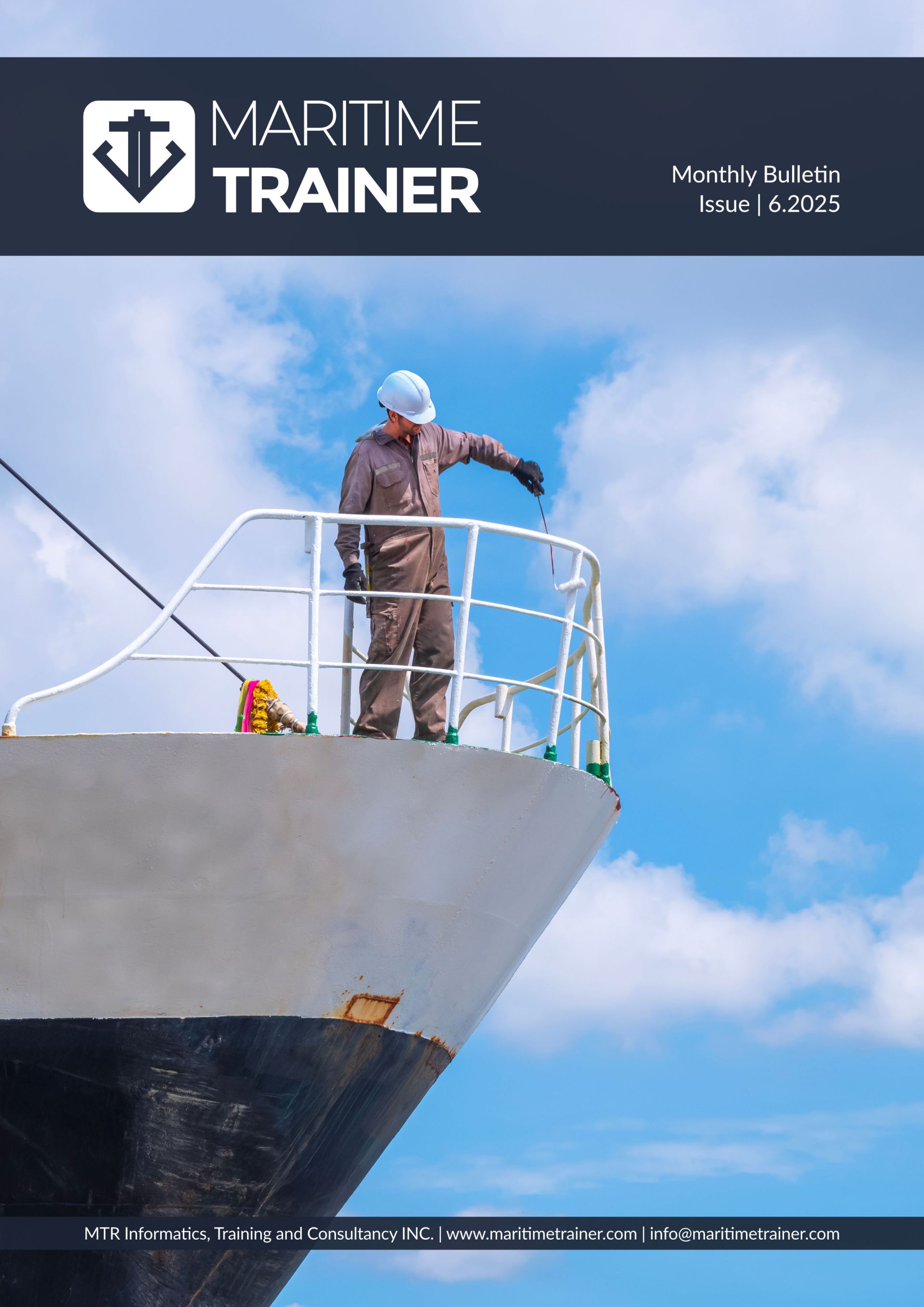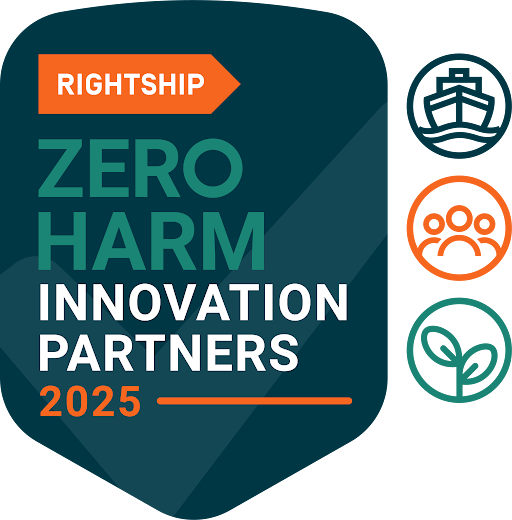
June 2025 brings a dynamic array of developments across the maritime sector, emphasizing the interconnectedness of security, seafarer wellbeing, operational safety, and global economic trends. As the industry continues to evolve, staying abreast of these changes is crucial for all maritime professionals. This month's Maritime Trainer Bulletin offers insights into key initiatives and pressing concerns.
The International Maritime Organization (IMO) continues to play a pivotal role in strengthening global maritime security. In Mauritius, the IMO is supporting efforts to enhance interagency cooperation and national-level decision-making for improved maritime security governance. This initiative aims to help Mauritius transition towards becoming a "Big Ocean State," linking security to a thriving blue economy.
Simultaneously, countries in the Red Sea region are focusing on improving their preparedness and response systems for major marine pollution incidents involving oil and Hazardous and Noxious Substances (HNS). An IMO-supported workshop in Egypt emphasized building technical skills and reinforcing contingency planning, crucial for one of the world's most critical and geopolitically sensitive shipping lanes.
The Q1 2025 Seafarers Happiness Index, reported by The Mission to Seafarers, shows a slight increase in overall seafarer satisfaction to 6.98 out of 10. Positive aspects include strong teamwork and some improvements in connectivity. However, significant concerns persist. Safe manning levels remain a critical issue, with diminishing crew sizes on aging vessels leading to increased maintenance pressures and impacting morale. Limited shore leave and its link to workload fatigue, along with anxieties over wage stagnation amidst rising inflation, continue to be significant detractors from overall happiness. The report underscores the ongoing need to prioritize seafarer wellbeing for a sustainable maritime workforce.
Over-reliance on GPS can lead to significant navigational challenges if the system fails or is compromised. NorthStandard recently highlighted essential best practices, emphasizing the importance of cross-checking positions using traditional methods, even when using ECDIS. Key recommendations include regularly plotting positions with ranges and bearings, increasing fixing frequency in coastal waters, utilizing parallel indexing, using the echo sounder for depth confirmation, and confirming positions before and after course alterations. Familiarity with how GPS loss affects other bridge equipment and running drills for such scenarios are also crucial.
The United Nations Conference on Trade and Development (UNCTAD) latest report, "Trade and development foresights 2025," warns that the world economy is on a recessionary trajectory, with global growth expected to slow. Heightened trade policy uncertainty, now at historic highs, is significantly impacting business confidence and reshaping global trade patterns. While an uptick in trade was seen in late 2024/early 2025 due to front-loaded orders before new tariffs, this momentum is expected to fade. The report calls for strengthening policy coordination and multilateral cooperation, highlighting South-South trade as a potential buffer against global shocks.
A key amendment to the International Maritime Dangerous Goods (IMDG) Code, welcomed by ICHCA International, aims to enhance safety requirements for shipping ammonium nitrate. The revised clause 7.6.2.8.4 clarifies that under-deck carriage of ammonium nitrate is permissible only if all hatches, including tween deck hatches, can be readily opened in an emergency. This ensures effective firefighting measures like ventilation and boundary cooling can be implemented. While mandatory from 2026, voluntary compliance is encouraged from January 2025.
Effective May 8, 2025, the Maritime and Port Authority of Singapore (MPA) has updated its requirements for the mandatory submission of the Maritime Declaration of Health (MDH). This applies to vessels arriving from a specified list of countries within the last 21 days, those with crew/passengers who have traveled to these countries, ships with suspected infectious diseases or a dead body onboard, or any ship with a sick person. Relevant documentation must be submitted 12 hours before arrival.
Two recent incidents serve as stark reminders of the importance of robust safety cultures:
- Burning Plastic on Deck Causes Fatality: A crew member was fatally injured while burning plastic waste in an oil drum on the poop deck using paint thinner as an accelerant—an unauthorized procedure. The investigation revealed critical lapses in communication, non-adherence to the company's SMS (which forbade open-deck burning), and a failure to challenge unsafe instructions.
- Loss of Situational Awareness Leads to Loss of Tug: A tug ran aground at full speed and was lost while attempting to break ice near a barge. The crew's focus on visually following the ice channel led to a loss of situational awareness regarding a nearby shoal. Issues with the ENC setup, including color palettes that didn't highlight shallow dangers and over-zooming, contributed. The incident highlights the critical need to use all available means for position fixing and ensure correct ENC/ECDIS configuration.
Maritime Trainer continues to expand its offerings to meet industry needs:
- 1131 - Port State Control: Provides a clear overview of PSC, inspection types, deficiency codes, and preparation tips, including a scenario-based module. Learn more: https://maritimetrainer.com/course/1131-port-state-control-training
- 1102 - Marine Casualty and Incident Investigation: Focuses on building investigation skills, covering accident analysis, evidence gathering, human factors, and regulatory insights. Learn more: https://maritimetrainer.com/course/1102-marine-casualty-and-incident-investigation
- 1180 - Welcome to Inspector: Equips crew members to approach ship inspections with confidence, covering preparation, protocols, and teamwork. Learn more: https://maritimetrainer.com/course/1180-welcome-to-inspector
- 1118 - Maritime Labour Convention (MLC) Awareness: An updated course detailing seafarers' rights, shipowners' responsibilities, and the implementation of fair working and living conditions under MLC 2006. Learn more: https://maritimetrainer.com/course/1118-mlc-awareness-training
The June 2025 updates highlight the multifaceted challenges and responsibilities facing the maritime industry. From bolstering security measures and addressing the nuanced aspects of seafarer welfare to adapting to new cargo safety regulations and learning from operational incidents, a proactive and informed approach is essential. Continuous training and a commitment to best practices are fundamental to navigating this evolving landscape safely and effectively.
Discover More:
Download and read the full version below!
For more information and to stay updated with the latest developments, connect with us on
Linkedin,
Facebook,
Instagram, and
YouTube. For inquiries, please contact us at sales@maritimetrainer.com.





